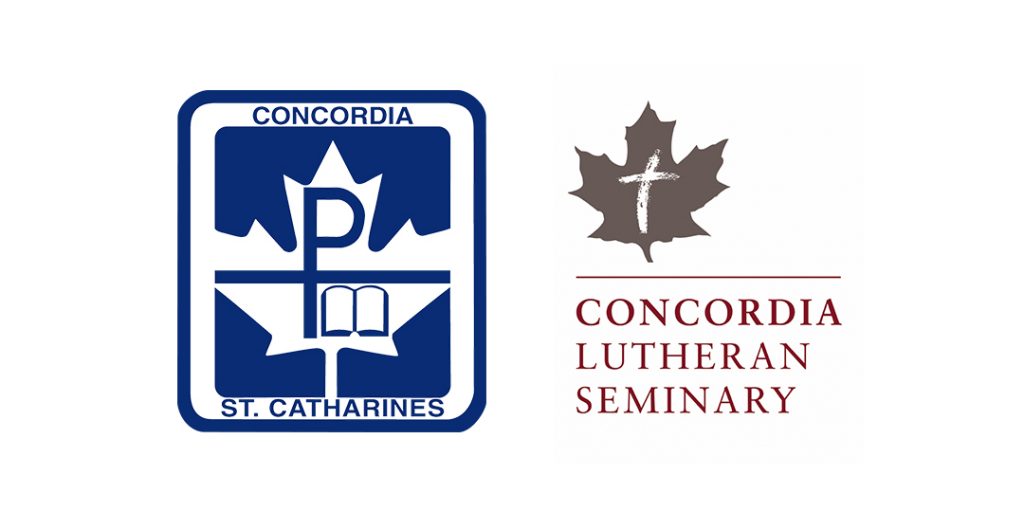LCC Seminaries at Work
 Where do pastors and deacons come from? They don’t grow on trees, get harvested in the forestlands of northern Canada, or come as a result of fracking, refineries, and pipelines. They are called to believe and belong to the family of our Father through the water and Word of Holy Baptism, and are nurtured through Sunday school, family devotions, Catechism class, and the worship life of congregations like yours.
Where do pastors and deacons come from? They don’t grow on trees, get harvested in the forestlands of northern Canada, or come as a result of fracking, refineries, and pipelines. They are called to believe and belong to the family of our Father through the water and Word of Holy Baptism, and are nurtured through Sunday school, family devotions, Catechism class, and the worship life of congregations like yours.
Often those who are serious about a life of discipleship begin to feel a tug or nudge from God to consider service to Christ and His Church and ministry. Potential pastors and deacons are often identified early in life for their serious commitment to matters of faith and life, and their sense of inquiry into the Bible and theology that might remind people of Jesus’ visit to the Jerusalem Temple and His inquisitive and instructive conversations with the religious leaders of His day. It is a powerful thing when a pastor, teacher, parent, or church leader notices a unique level of interest, and prays for that youth, providing encouragement and support for consideration of training for ministry.
The two seminaries of Lutheran Church–Canada (LCC) look for applicants who have a strong Christian faith, including active participation in worship and the ordinary rhythms of a local Lutheran congregation. Since the seminary education is at a graduate level resulting in a M.Div., a Master of Theological Studies, or a Graduate Certificate in Diaconal Studies, the seminaries require students to hold a Bachelor’s degree and proficiency in the two biblical languages (Greek and Hebrew), which are often included in undergraduate work or taken through separate coursework.
Where do pastors and deacons come from? They don’t grow on trees, get harvested in the forestlands of northern Canada, or come as a result of fracking, refineries, and pipelines.
Student populations are small at both seminaries, allowing a very hands-on and personalized opportunity to be mentored in faith and servant leadership for ministry. This context creates a closely-knit community of learning where students benefit from unique mentor relationships. Pastoral students generally study two or three years on campus prior to a year of vicarage (internship), followed by a year back on the seminary campus. Deacons can complete their academic and internship work in two full years of hard work. MTS students can also complete their work in one to two years. Deacon and pastoral students are also involved in local congregations as “field work” students.
The seminaries also contribute to other services in LCC: participation on the Commission on Theology and Church Relations documents and discussions; speaking and leadership at conferences and conventions; and writing and scholarly contributions to the Lutheran world and beyond. The seminaries together produce a peer-reviewed journal, the Lutheran Theological Review.
Both seminaries are led by committed regents who provide fiduciary governance. Both seminaries are accredited by the Association of Theological Schools. Both seminaries are continually working on process and programme improvements. Both seminaries are committed to employing committed faculty and staff who further the mission of Christ and His Church. Both seminaries are taking steps to fill faculty vacancies with highly qualified and committed Lutheran servants of Christ.
The partnership between the church and its seminaries is critically important. The partnership between the two seminaries allows smaller faculties and programmes to provide a solid education for future ministers in LCC.
We encourage each congregation to select a Sunday, possibly during the Epiphany Season of the Church year, to focus on the seminaries that partner with Lutheran Church– Canada. LCC’s seminaries prepare pastors, deacons, and the laity for theological leadership in Canada. Both seminaries are small and independently chartered and funded, but receive support from the congregations of LCC, from member donors in LCC, direct endowment revenue from donors to the seminary endowments, from LCC directly, and finally a small amount from student tuition.
The seminaries depend upon donations and support from Lutherans across Canada to fund the mission and work on academic, parish, and life formation that helps serve in local congregations and communities. A heartfelt thank you goes out to those who support the seminaries’ missions in a variety of ways.
Rev. Dr. James R. Gimbel
———————




